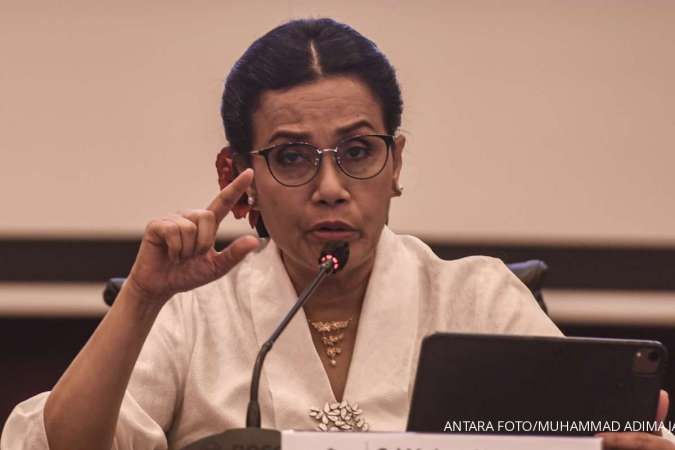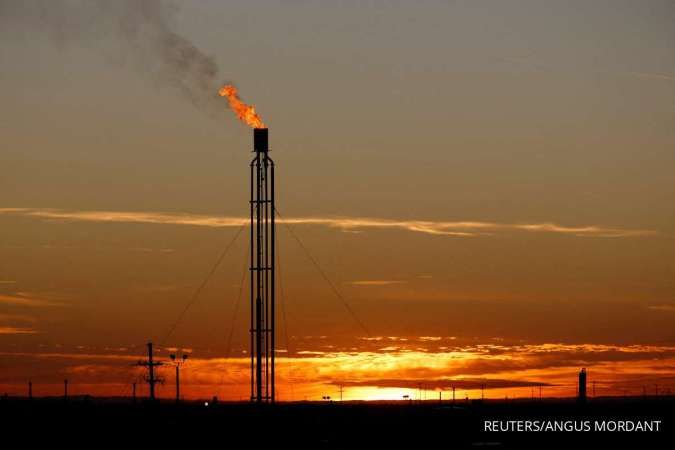STATE BUDGET - JAKARTA. The Indonesian government remains vigilant about the potential rise in global crude oil prices and its impact on the 2024 State Budget (APBN).
Despite contributing to additional revenue, the increase in oil prices also adds to state expenditure, particularly the energy subsidy budget, and the rate of inflation.
The Ministry of Finance (Kemenkeu) noted that the price of Brent crude oil has surged 14.3% year to date (ytd) from January to April 2024. As of April, the price of Brent oil was recorded at US$ 88 per barrel, down after briefly touching US$ 90 per barrel.
Read Also: Ultrajaya (ULTJ) Provides an Explanation of the Impact of the Free Milk Program
Meanwhile, the price of West Texas Intermediate (WTI) crude oil was at US$ 84.2 per barrel in April 2024. Although lower than Brent, the rise in WTI oil prices also soared, reaching 17.5% YTD from January to April 2024.
"So, there is indeed a tendency for oil price increases within a year or between January 2024 to March and even April. And, this cannot be denied because there is pressure from geopolitics in the Middle East," revealed Finance Minister Sri Mulyani on Friday (26/4).
Sri Mulyani stated that the government will remain vigilant about the possibility of a surge in global oil prices. On the other hand, there is also the potential for the conflict between Iran and Israel to subside.
Read Also: Almost Finished, Here's the Progress of the TikTok Shop and Tokopedia Migration
For the record, in the 2024 APBN, the government set the assumption of the Indonesian crude price (ICP) at US$ 82 per barrel. This means that the movement of global crude oil prices is still above the ICP assumption.
Meanwhile, based on the sensitivity analysis of the 2024 APBN to changes in basic macroeconomic assumptions, every increase in the ICP by US$ 1 per barrel will contribute to a budget deficit of IDR 6.2 trillion.
Possible Easing
The Director General of Budget at the Ministry of Finance, Isa Rachmatarwata, stated that according to the provisions in the State Budget Law, the Finance Minister is indeed allowed to adjust the subsidy budget. In 2023, for example, the Finance Minister increased the subsidy budget in line with the rise in global oil prices.
Isa said that an increase in the ICP and a weakening of the rupiah exchange rate could indeed increase state revenue. "This could give the Finance Minister the flexibility to ease the subsidy budget," he said. Unfortunately, Isa is still reluctant to mention the government's scenario about this.
As of the end of March 2024, the government has realized an energy subsidy budget of IDR 27.9 trillion, slightly higher than the same period in 2023, which was recorded at IDR 24.5 trillion.
Read Also: Oil Prices on Track to Snap Two-Week Losing Streak
The details are for the distribution of fuel oil (BBM) subsidies reaching 2.81 million kiloliters, 3-kilogram LPG cylinder subsidies as much as 1.33 million metric tons (MT), and electricity subsidies for 40.2 million customers.
Throughout 2024, the government allocated an energy subsidy budget of IDR 189.1 trillion, up 15.09% compared to the realization in 2023, which was recorded at IDR 164.3 trillion.
However, the subsidy budget at the end of this year has the potential to swell because the government has also decided to hold the BBM price until next June, in addition to the increase in oil prices due to tensions between Iran and Israel.
/2022/11/17/2071900652p.jpg)













